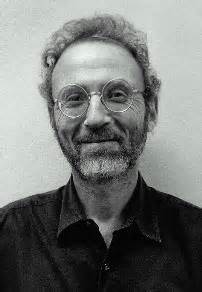A Quote by Neil Gaiman
My guiltiest pleasure is Harry Stephen Keeler. He may have been the greatest bad writer America has ever produced. Or perhaps the worst great writer. I do not know. There are few faults you can accuse him of that he is not guilty of. But I love him.
Related Quotes
'It was stupid, thinking it was him, I mean, I knew he was dead' Harry muttered. 'You think the dead we loved ever truly leave us? You think that we don't recall them more clearly than ever in times of great trouble? Your father is alive in you, Harry, and shows himself most plainly when you have need of him....You know, Harry, in a way you did see your father last night....You found him inside yourself.'
I'm looking for a writer who doesn't know where the sentence is leading her; a writer who starts with her obsessions and whose heart is bursting with love, a writer sly enough to give the slip to her secret police, the ones who know her so well, the ones with the power to accuse and condemn in the blink of an eye. It's all right that she doesn't know what she's thinking until she writes it, as if the words already exist somewhere and draw her to them. She may not know how she got there, but she knows when she's arrived.
Even the most incorrigible maverick has to be born somewhere. He may leave the group that produced him-he may be forced to-but nothing will efface his origins, the marks of which he carries with him everywhere. I think it is important to know this and even find it a matter for rejoicing, as the strongest people do, regardless of their station. On this acceptance, literally, the life of a writer depends.
The writer is a definite human phenomenon. He is almost a type - as pugilists are a type. He may be a bad writer - an insipid one or a clumsy one - but there is a bug in him that keeps spinning yarns; and that bulges his brow a bit, narrows his jaws, weakens his eyes and gives him girl children instead of boys. Nobody but a writer can write. People who hang around writers for years - as producers did - who are much smarter and have much better taste, never learn to write.
Oh, I love labels, as long as they are numerous. I'm an American writer. I'm a Nigerian writer. I'm a Nigerian American writer. I'm an African writer. I'm a Yoruba writer. I'm an African American writer. I'm a writer who's been strongly influenced by European precedents. I'm a writer who feels very close to literary practice in India - which I go to quite often - and to writers over there.
My father was the editor of an agricultural magazine called 'The Southern Planter.' He didn't think of himself as a writer. He was a scientist, an agronomist, but I thought of him as a writer because I'd seen him working at his desk. I just assumed that I was going to do that, that I was going to be a writer.
I remember that the single most vicious letter I ever read was the letter Hemingway wrote Scribners when they asked him to give a blurb for From Here to Eternity. It's there, in the Selected Letters for all to read, an example of a once great writer at his very worst. I doubt that he ever forgave Scribners for publishing James Jones in the first place. War, as Hemingway saw it, belonged to him.

































